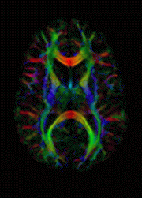
Photo from wikipedia
Tropical cyclone (TC) intensity estimation is an important task in meteorological research. Meanwhile, TC intensity estimation performance can be improved by developing advanced machine learning techniques using the newly emerged… Click to show full abstract
Tropical cyclone (TC) intensity estimation is an important task in meteorological research. Meanwhile, TC intensity estimation performance can be improved by developing advanced machine learning techniques using the newly emerged high-quality multispectral images (MSIs) acquired by FY-4 meteorological satellite of China. To this end, this article proposes a novel model, tensor-based convolutional neural network (TCNN). Not only being a deep network entirely formulated in tensor algebra, but TCNN also establishes the mathematical connections between tensor decomposition and CNN operations with tensor contraction. Moreover, TCNN adopts a multitask structure, which consists of a classification network for intensity categorization and a regression network for wind speed estimation. It allows the regression network to leverage the outcome of the classification network, thus ensuring intensity estimation accuracy. In addition, two alternative TCNN models, coupled TCNN (C-TCNN) and Tucker TCNN (T-TCNN), are designed to automatically deal with invalid band data in the FY-4 MSIs, which has been a practical issue with the data. Experimental results prove that the proposed network is accurate and functional. They also demonstrate the advantages of TCNN over other TC intensity estimation methods, showing that C-TCNN and T-TCNN outperform several classic models and the state-of-the-art models based on CNN.
Journal Title: IEEE Transactions on Geoscience and Remote Sensing
Year Published: 2021
Link to full text (if available)
Share on Social Media: Sign Up to like & get
recommendations!